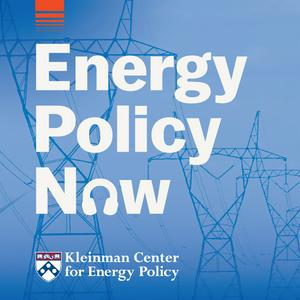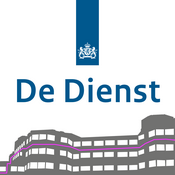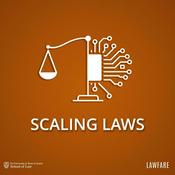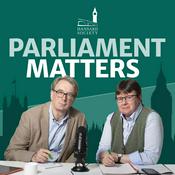220 afleveringen
- The nation’s largest electric grid operator outlines its plan to manage rapid growth in data center electricity demand.
---
PJM Interconnection, the nation’s largest grid operator, is preparing to file a wide-ranging proposal with federal regulators aimed at managing the rapid growth of electricity demand, including AI-driven data centers. The plan stands out as one of the first comprehensive efforts by a grid operator to address surging load from new technologies while maintaining system reliability and limiting cost impacts on consumers.
The proposal arrives at a moment when the electric grid is under growing stress. Tightening power supply-demand balances, high-profile grid failures, and a series of narrowly avoided outages have raised concerns about whether the power system can continue to meet demand reliably. At the same time, those pressures have increasingly shown up in electricity prices, which have increased sharply in many areas.
PJM’s proposal tries to answer a question grid operators across the country are now facing: how to say “yes” to large new loads without turning reliability into a gamble or costs into an afterthought. The plan lays out a structured approach to integrating data centers and other large loads, with an eye toward keeping commitments realistic and aligning responsibility with impact.
Abe Silverman is an assistant research scholar with the Ralph O’Connor Sustainable Energy Institute at Johns Hopkins University and a former general counsel to the New Jersey Board of Public Utilities. Tom Rutigliano is senior advocate for climate and energy at the Natural Resources Defense Council, where his work focuses on PJM. Both participated in the policy discussions surrounding PJM’s proposal, and provide their perspective on its potential impacts on grid reliability, consumers, and the potential rate of datacenter growth.
Abe Silverman is an assistant research scholar with the Ralph O’Connor Sustainable Energy Institute at Johns Hopkins University and a former general counsel to the New Jersey Board of Public Utilities.
Tom Rutigliano is senior advocate for climate and energy at the Natural Resources Defense Council, where his work focuses on PJM.
Related Content
Communities Are at Risk If We Don’t Slow the Roll on Data Center Development https://kleinmanenergy.upenn.edu/commentary/blog/communities-are-at-risk-if-we-dont-slow-the-roll-on-data-center-development/
Energy System Planning: New Models for Accelerating Decarbonization https://kleinmanenergy.upenn.edu/research/publications/energy-system-planning-new-models-for-accelerating-decarbonization/
Energy Policy Now is produced by The Kleinman Center for Energy Policy at the University of Pennsylvania. For all things energy policy, visit kleinmanenergy.upenn.edu.
See omnystudio.com/listener for privacy information. - AI data centers are driving rapid demand growth, exposing the limits of traditional electricity forecasting and planning.
---
Electricity demand in the United States is rising fast, fueled in large part by the rapid expansion of AI data centers. Grid operators have repeatedly revised their demand forecasts upward as they try to anticipate how much new power these facilities, along with other emerging loads such as advanced manufacturing and crypto mining, will require.
In January, however, something unexpected happened. PJM Interconnection, the nation’s largest grid operator, lowered its demand growth outlook, just weeks after a capacity auction driven by expectations of booming demand produced record high prices.
Estimating how much electricity new data centers and other large loads will actually add to the grid is difficult, and the uncertainty cuts both ways. Overestimating demand can leave consumers paying for grid infrastructure that never gets fully used. Underestimating it can threaten reliability. All of this is playing out as the rapid buildout of data centers is increasingly framed as a question of economic competitiveness and national security.
On the podcast, Shana Ramirez and Arne Olson of Energy and Environmental Economics argue that while improving forecast accuracy remains important, uncertainty itself needs to play a more central role in how the grid is planned and governed. In a recent E3 paper, they lay out why demand forecasts will remain imperfect, and why grid rules and planning processes should be designed to work across a range of possible outcomes rather than relying on a single view of the future.
Ramirez and Olson discuss the reliability and cost challenges this uncertainty creates and describe governance approaches that could help the power system remain reliable and affordable as new loads come online.
Shana Ramirez is director, asset valuation and markets at E3.
Arne Olson is a senior partner at E3.
Related Content:
Boomtowns in the Battery Belt: Risks and Opportunities of Clean Energy Investments in Small Towns of America https://kleinmanenergy.upenn.edu/research/publications/boomtowns-in-the-battery-belt-risks-and-opportunities-of-clean-energy-investments-in-small-towns-of-america/
Energy System Planning: New Models for Accelerating Decarbonization https://kleinmanenergy.upenn.edu/research/publications/energy-system-planning-new-models-for-accelerating-decarbonization/
Energy Policy Now is produced by The Kleinman Center for Energy Policy at the University of Pennsylvania. For all things energy policy, visit kleinmanenergy.upenn.edu.
See omnystudio.com/listener for privacy information. - Gas-fired power is back in favor in the United States, but methane emissions threaten its credibility.
---
Methane is one of the most potent greenhouse gases, and global efforts to curb methane emissions are accelerating. Beginning later this decade, the European Union will impose new methane rules on oil and gas imports, and major energy-importing countries across Asia are paying closer attention to the emissions profile of the fuels they buy.
The policy outlook in the United States, however, is very different. Under the Trump administration, federal methane regulations have been delayed or rolled back, even as policymakers promote expanded use of natural gas, particularly in the power sector. This divergence raises questions not only about climate impacts, but about competitiveness. As international buyers increasingly factor environmental performance into purchasing decisions, U.S. producers’ ability to measure and reduce methane emissions may shape their access to global markets. More broadly, natural gas’s credibility as a lower-carbon fossil fuel hinges on keeping methane leaks to a minimum.
Mark Brownstein, senior vice president for energy transition at the Environmental Defense Fund, has spent more than two decades focused on identifying, measuring, and reducing methane leaks across the natural gas value chain. He discusses why methane has moved to the center of climate and energy debates, how international pressure is reshaping expectations for fossil fuel producers, and how new tools, including a recently released global methane scorecard developed with the International Energy Agency and the United Nations, are helping to track progress. He also explains why cutting methane emissions remains one of the most achievable and cost-effective climate actions available today.
Mark Brownstein is senior vice president for energy transition at the Environmental Defense Fund and a member of the Kleinman Center advisory board.
Related Content:
Energy System Planning: New Models for Accelerated Decarbonization https://kleinmanenergy.upenn.edu/research/publications/energy-system-planning-new-models-for-accelerating-decarbonization/
Elevating Carbon Management: A Policy Decision-Making Framework and Rubric for the 21st Century https://kleinmanenergy.upenn.edu/research/publications/elevating-carbon-management-a-policy-decision-making-framework-and-rubric-for-the-21st-century/
Energy Policy Now is produced by The Kleinman Center for Energy Policy at the University of Pennsylvania. For all things energy policy, visit kleinmanenergy.upenn.edu.
See omnystudio.com/listener for privacy information. - An economic sociologist discusses the growing heat dangers facing last-mile delivery drivers, and why federal protections remain stalled.
---
E-commerce has transformed the way goods move through the American economy, driving unprecedented growth in parcel deliveries and intensifying competition among major carriers and the U.S. Postal Service. Yet this push for speed and volume now unfolds amid longer, more intense heat waves, exposing the nation’s roughly 1.5 million delivery drivers to climate-driven temperature extremes that pose growing risks on their routes.
In this episode, economic sociologist and Kleinman Center faculty fellow Steve Viscelli discusses how rising heat intersects with the structure of the delivery industry. He describes the job conditions that can leave drivers vulnerable, from demanding routes to the use of monitoring technologies that encourage workers to stay on pace even when temperatures climb.
Viscelli looks at the policy landscape that shapes these conditions, explains why federal heat protections for workers have been slow to materialize, and how this reality affects drivers’ day-to-day experience. He also points to steps some states are taking to set their own standards to address hotter and more demanding delivery seasons.
Steve Viscelli is an economic and political sociologist at the University of Pennsylvania and a faculty fellow with the Kleinman Center for Energy Policy.
Related Content:
Energy System Planning: New Models for Accelerating Decarbonization https://kleinmanenergy.upenn.edu/research/publications/energy-system-planning-new-models-for-accelerating-decarbonization/
Who Buys Down the Risk When Federal Funding Recedes? https://kleinmanenergy.upenn.edu/commentary/blog/who-buys-down-the-risk-when-federal-funding-recedes/
Energy Policy Now is produced by The Kleinman Center for Energy Policy at the University of Pennsylvania. For all things energy policy, visit kleinmanenergy.upenn.edu.
See omnystudio.com/listener for privacy information. - John Helveston of George Washington University discusses why a U.S. pullback from China on EVs is risky, and why engagement could strengthen America’s auto industry.
---
China has rapidly become the center of global EV innovation, producing cars that are cheaper, faster to develop, and increasingly competitive in international markets. The United States, by contrast, is pulling back, eliminating incentives and pursuing policies that distance the country from China just as the global EV transition accelerates.
George Washington University’s John Helveston, whose work focuses on global EV markets and China’s manufacturing system, argues that this course risks sidelining the U.S. from the technologies and supply chains shaping the automotive future. On the podcast, he explains why a more pragmatic approach that protects national security and workers while engaging with China’s central role in the EV ecosystem may be essential for America’s long-term position in the global auto industry.
John Helveston is an associate professor in the department of Engineering Management and Systems Engineering at George Washington University.
Related Content
Electric Vehicle Penetration and Urban Spatial Restructuring: A Case Study of Beijing with Geospatial Machine Learning https://kleinmanenergy.upenn.edu/research/publications/electric-vehicle-penetration-and-urban-spatial-restructuring-a-case-study-of-beijing-with-geospatial-machine-learning/
Battling for Batteries: Li-Ion Policy and Supply Chain Dynamics in the U.S. and China https://kleinmanenergy.upenn.edu/research/publications/battling-for-batteries-li-ion-policy-and-supply-chain-dynamics-in-the-u-s-and-china/
Energy Policy Now is produced by The Kleinman Center for Energy Policy at the University of Pennsylvania. For all things energy policy, visit kleinmanenergy.upenn.edu.
See omnystudio.com/listener for privacy information.
Meer Overheid podcasts
Trending Overheid -podcasts
Over Energy Policy Now
Energy Policy Now offers clear talk on the policy issues that define our relationship to energy and its impact on society and the environment. The series is produced by the Kleinman Center for Energy Policy at the University of Pennsylvania and hosted by energy journalist Andy Stone. Join Andy in conversation with leaders from industry, government, and academia as they shed light on today's pressing energy policy debates.
Podcast websiteLuister naar Energy Policy Now, De Dienst en vele andere podcasts van over de hele wereld met de radio.net-app

Ontvang de gratis radio.net app
- Zenders en podcasts om te bookmarken
- Streamen via Wi-Fi of Bluetooth
- Ondersteunt Carplay & Android Auto
- Veel andere app-functies
Ontvang de gratis radio.net app
- Zenders en podcasts om te bookmarken
- Streamen via Wi-Fi of Bluetooth
- Ondersteunt Carplay & Android Auto
- Veel andere app-functies


Energy Policy Now
Scan de code,
download de app,
luisteren.
download de app,
luisteren.





































